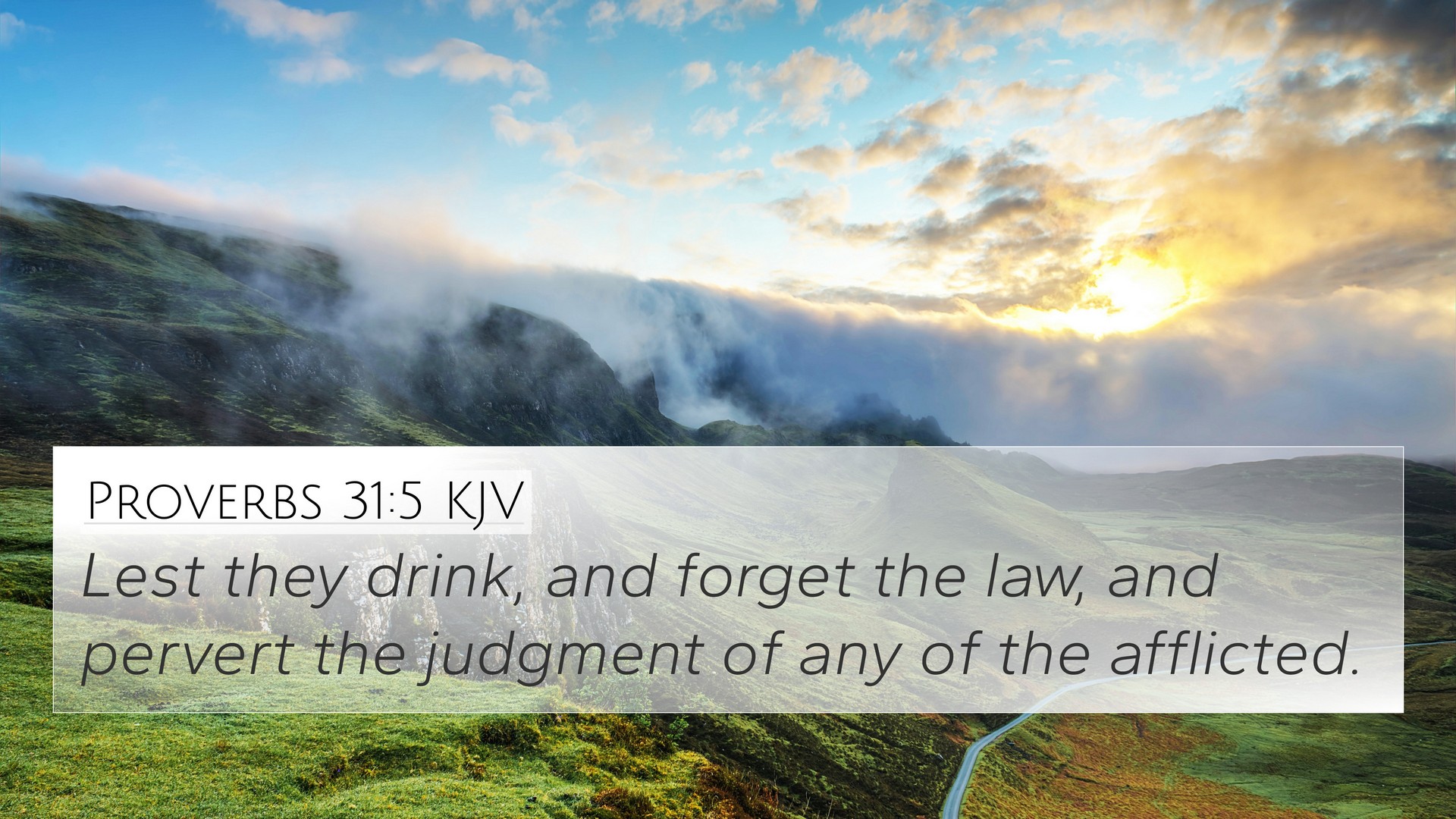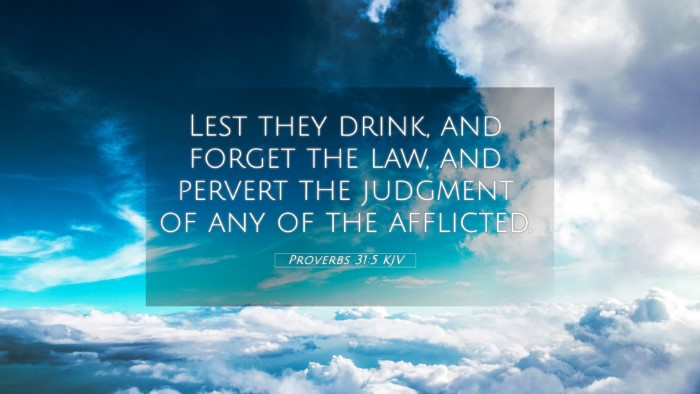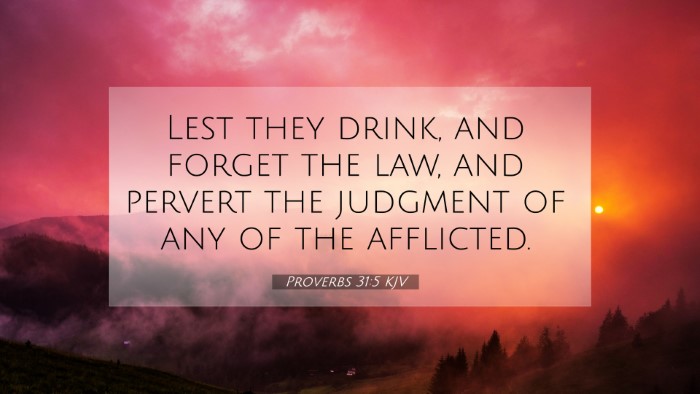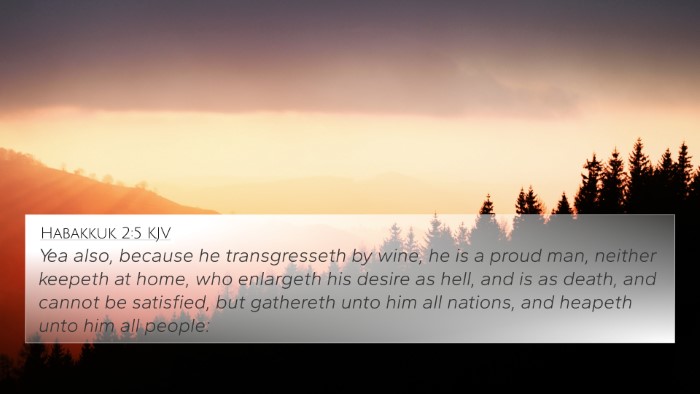Understanding Proverbs 31:5
Proverbs 31:5 states: "Lest they drink, and forget the law, and pervert the judgment of any of the afflicted." This verse is part of a section that provides counsel on the use of alcohol, particularly to leaders and those in positions of authority. The context encourages wisdom in decision-making and emphasizes the detrimental effects of drunkenness on judgment.
Key Themes
- The Dangers of Intoxication: All three commentators, Matthew Henry, Albert Barnes, and Adam Clarke, highlight the destructive nature of alcohol, especially in terms of how it clouds judgment and leads to unjust decisions.
- Responsibility of Leadership: The verse stresses that leaders must remain sober to ensure fairness and justice, making their effective governance critical to societal well-being.
- Call to Justice: There's a clear call to protect the vulnerable; neglecting this responsibility can lead to injustice.
Commentary Insights
- Matthew Henry: Henry notes that drunkenness can lead to forgetting the law, implying a moral and ethical degeneracy that results in a failure to uphold justice, especially for the afflicted.
- Albert Barnes: Barnes emphasizes that leaders under the influence of alcohol may distort justice and mishandle the cases of those in need. He correlates the need for sober judgment with fulfilling one's duties to society and the oppressed.
- Adam Clarke: Clarke interprets this verse by underscoring the need for clarity and awareness in decision-making roles, arguing that one intoxicated cannot possibly serve effectively.
Bible Verse Cross-References
This verse connects with a range of other scriptural passages, illustrating similar themes:
- Proverbs 20:1: "Wine is a mocker, strong drink is raging: and whosoever is deceived thereby is not wise."
- Isaiah 28:7: "But they also have erred through wine, and through strong drink are out of the way."
- 1 Timothy 3:3: "Not given to wine, no striker, not greedy of filthy lucre; but patient, not a brawler, not covetous."
- Titus 2:3: "The aged women likewise, that they be in behavior as becometh holiness, not false accusers, not given to much wine, teachers of good things."
- Ephesians 5:18: "And be not drunk with wine, wherein is excess; but be filled with the Spirit."
- Proverbs 23:30-31: "They that tarry long at the wine; they that go to seek mixed wine. Look not thou upon the wine when it is red, when it giveth his color in the cup, when it moveth itself aright."
- Psalm 82:3: "Defend the poor and fatherless: do justice to the afflicted and needy."
Thematic Bible Verse Connections
By exploring the connections between these verses, one can better understand the broader scriptural message about leadership, justice, and the perils of intoxication:
- Both Proverbs 20:1 and Proverbs 23:30-31 reinforce the idea that wine can lead to folly.
- Isaiah 28:7 adds a prophetic perspective, illustrating the consequences of drunkenness on spiritual leaders.
- In contrast, Ephesians 5:18 calls believers to fulfill their spiritual obligations without the sway of inebriation, promoting a life led by the Holy Spirit.
- Timothy and Titus stress the qualifications for church leaders, emphasizing sobriety as a key attribute in their moral and ethical conduct.
- Psalm 82:3 correlates with Proverbs 31:5 by calling for justice, highlighting the importance of protecting the oppressed in the community.
Conclusion
The careful integration of Proverbs 31:5 into the wider canon of scripture reveals the importance of responsible leadership that prioritizes justice and compassion. The insights from Matthew Henry, Albert Barnes, and Adam Clarke underscore the need for sobriety and a clear mind when making decisions that affect the lives of others.



